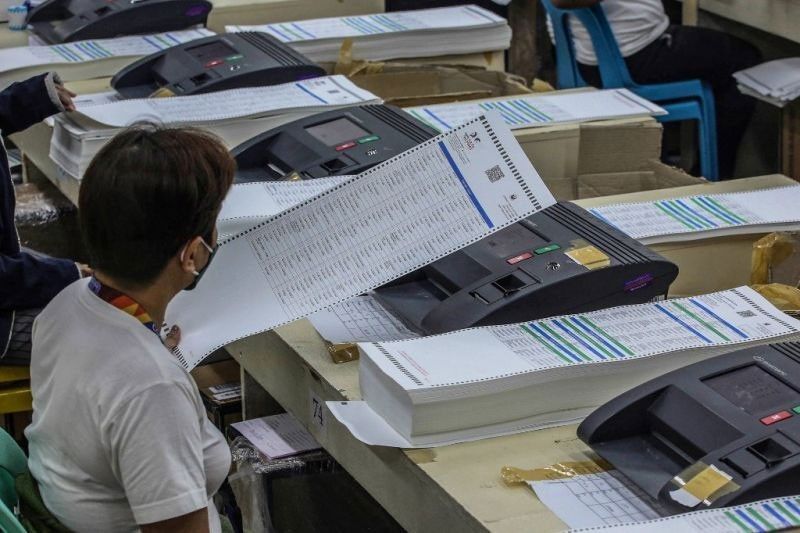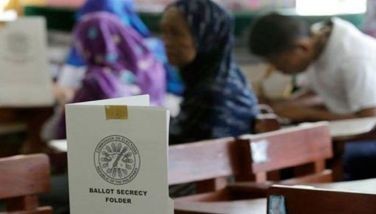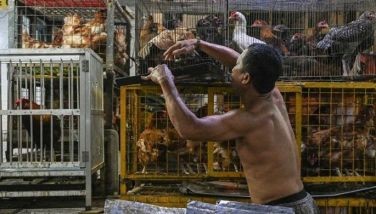Bill targets troll farms, sets jail time for election disinformation

MANILA, Philippines — Two House lawmakers introduced a bill to hold disinformation peddlers, specifically troll farms, vloggers, influencers and political candidates, accountable for creating targeted disinformation.
Representatives Margarita Nograles-Almario (PBA Partylist) and Cheeno Miguel Almario (Davao Oriental, 2nd District) filed House Bill 11178 or the Anti-Troll Farm and Election Disinformation Act on December 5.
“Troll farms are not just digital pranks — they are systematic tools designed to deceive voters and distort democracy,” Nograles-Almario said in a statement on Monday, December 9.
Nograles-Almario and Almario cited Article 19 of the International Covenant on Civil and Political Rights, stating that freedom of speech may be “restricted” in cases of disrespect, defamation, or when necessary for national security and public order.
The bill aims to prohibit and penalize troll farms, which were defined as groups of two or more individuals organized to deliberately create or spread false information. It also seeks to protect candidates and individuals from electoral disinformation.
What went before. Disinformation was rampant during the 2022 national elections. Pioneer fact-checking coalition TsekPH reported that most false or misleading information about President Ferdinand "Bongbong" Marcos Jr. and Vice President Sara Duterte benefited their reputations.
In contrast, former Vice President Leni Robredo and her running mate, former Senator Kiko Pangilinan, mostly faced disinformation maligning their reputations.
What becomes illegal
The proposed legislation identifies three prohibited acts.
First, it bans creating, maintaining, operating, funding, sponsoring or collaborating with troll farms.
Second, the bill prohibits producing disinformation that damages a political candidate’s reputation. This also includes hiring individuals such as vloggers and influencers to amplify such falsehoods for political gain.
Third, it forbids coordinating with or instructing third parties, including media outlets and vloggers, to generate and disseminate disinformation against a candidate.
However, people who will report on disinformation campaigns or a troll farm’s activities will be considered whistleblowers and protected under the Whistleblower Protection Act of 2021.
How will they be punished?
The bill imposes the highest penalties on organizations or troll farms involved in such operations, followed by political candidates, vloggers and influencers.
Individuals found guilty while acting alone will face the least severe penalty, ranging from six to 12 years in prison and a fine of at least P500,000 up to a maximum of P2 million.
Vloggers and influencers will receive a penalty one degree more severe.
Meanwhile, political candidates who are aware that they are benefiting from troll farms and electoral disinformation will be disqualified from the race, in addition to facing the prescribed penalties.
Organizations, on the other hand, will be fined between P5 million and P10 million and will have their business permits and licenses permanently revoked.
Additional penalties include confiscation and destruction of a troll farm’s equipment, tools and software. Their access to online platforms will also be suspended.
During the election period, troll farms and individuals participating in the spread of disinformation will receive the maximum penalty.
Role of online platforms. Besides cooperating with law enforcement agencies in investigations, organizations must respond to disinformation complaints within 24 hours or face fines ranging from P1 million to P5 million per violation.
“By holding accountable those who deliberately spread lies — whether through troll farms, vloggers or other channels — and by penalizing candidates who knowingly benefit from these actions, we can ensure a playing field for all,” the explanatory note read.
Government agencies responsible for coordinating, monitoring and investigating verified complaints are the Commission on Elections (COMELEC), the National Bureau of Investigation and the Philippine National Police.
The proposed legislation also mandates the Department of Education, Commission on Higher Education and the Department of Information and Communications to conduct educational campaigns “to promote voter awareness.”
Comelec's guidelines. In a September 2024 resolution, the Comelec declared that fake accounts, deepfakes and "fake news" will be treated as election offenses, prohibiting the use of visual disinformation.
- Latest
- Trending

































